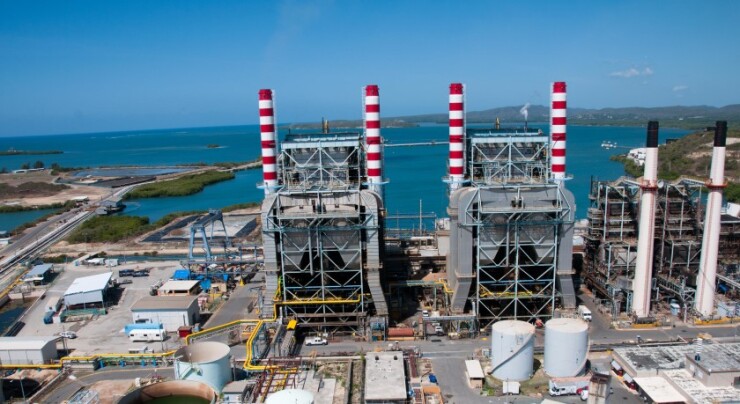Rising energy costs may cloud negotiations for a new Puerto Rico Electric Power Authority bond deal as the authority and LUMA Energy seek a rate increase for electricity customers.
Since the authority generates most of its electricity from burning oil and gas, the increasing costs due to geopolitical turmoil in Europe has led it to seek higher electricity prices.
The authority and LUMA Energy, which controls the transmission and distribution of PREPA's electricity to the island, are currently seeking an increase of 4.265 cents per kilowatt-hour from the Puerto Rico Energy Bureau for the April through June quarter. This would amount to a 16.6% increase in rates.

The authority currently only gets 3% of its electricity from renewable sources.
The increase in rates comes as the Puerto Rico Oversight Board, the Puerto Rico Fiscal Agency and Financial Advisory Authority, the
The debt deal already would require rate increases to cover debt service on the authority’s roughly $9 billion of debt. Board Member Justin Peterson has said the new deal will likely be more expensive for consumers than the one the governor killed.
Analysts disagreed on how the impending increase in costs for PREPA and increase in rates for consumers might affect the negotiations.
Evercore Wealth Management Director of Municipal Bond Research Howard Cure said PREPA is particularly sensitive to price rises because much of its energy is generated through burning oil. The increase in prices will impede negotiations and it will be hard for the authority and the board to make concessions at this point, he said.
Most of the parties will ignore the electricity rate increase, said Tom Sanzillo, director of finance at The Institute for Energy Economics and Financial Analysis. None of the parties represent the consumers, he said, adding they have had a history of ignoring the consumers’ concerns.
Only the PREPA trade unions may defend the consumers because they are concerned about the authority’s operating financial conditions, Sanzillo said.
The governor and the legislature are concerned about electrical rates, he said. But the board is barring the legislature from participating in the negotiations. While the governor nominally controls FAFAA, the latter is more interested in reaching a deal than lowering rates, he said.





